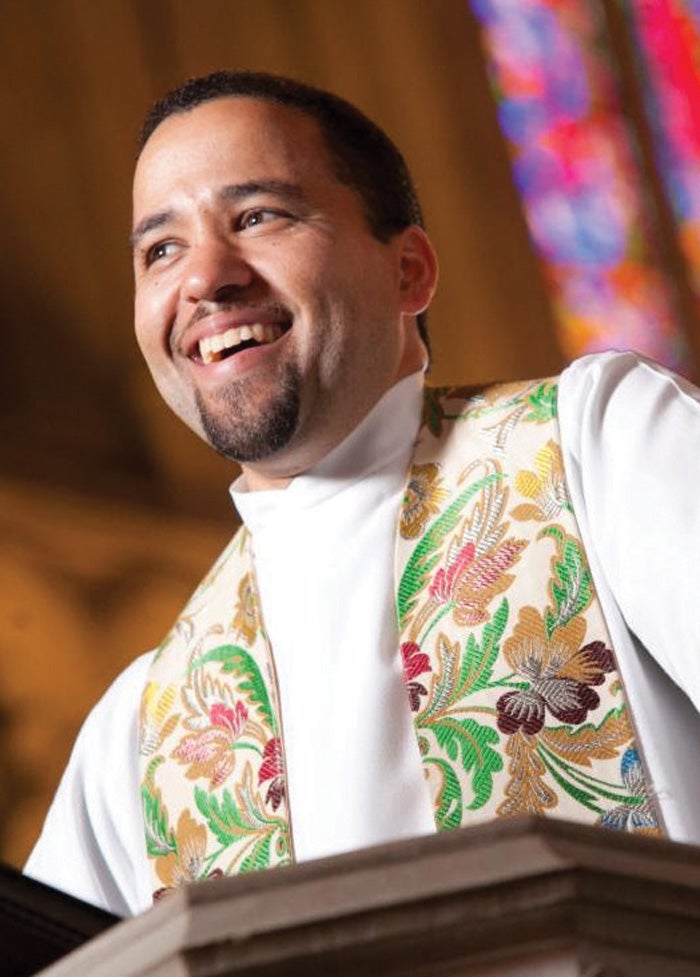Lewis Preaching Series at First Presbyterian Church
Published 12:00 am Friday, February 7, 2020

- Featured speaker Luke Powery, Dean of Duke University Chapel
Lewis Preaching Series at First Presbyterian Church
Finding God in the Questions
By Josh Musser Gritter
In Wendell Berry’s novel Jaybor Crow there is a fascinating scene. A young boy around middle school age attends a religious school. As he is familiarized with the Christian tradition, he finds himself awash with questions. Not merely “when did the dinosaurs get extinct” kind of questions, but quandaries that touch the mystery of human existence. Questions like, “Why are we here? How do I know God exists? If God is strong, then why did God die?” In his quest to find answers, the young boy garners a reputation for interrogating the teachers at his school. One by one, the young boy’s educators meet his search for truth and knowledge with consternation. For these adults, faith and doubt cannot co-exist.
Frustrated and deflated, the young boy decides to play his last card. There is one teacher left. The only problem is that he happens to be the grumpiest, strictest, most curmudgeonly of the bunch. The young boy tentatively approaches his teacher’s office. He mumbles out his questions, expecting to be shut-down and disappointed. To his surprise, the boy is met with a bright smile and a look of luminous glee. The teacher’s response is wonderful, “To some questions, there are no easy answers. Some questions you will have to live.”
For the better part of three millennia, questions have been the blood pumping the heart of the Judeo-Christian tradition. A large portion of Jewish sacred text, known as the Talmud, is comprised largely of religious scholars tossing questions at one another. Church historians would remind us, too, that much of what Christians take for granted doctrinally (The Trinity, Jesus’ divinity and humanity, the Virgin Birth) was heavily debated in the first four centuries of Christianity’s existence. Questions have been, and will always be, the verdant soil in which faith bears its fruit.
Like our religious forebears, modern Christianity has many questions to face. What does it mean to be Christian in an age of political polarization, technological advancement, increasing globalization, and rising anxiety? As interest in religious institutions fades, what will become of our downtown churches? Beyond asking faith’s more pertinent questions, how does today’s Church respond to our culture’s quest for truth—a quest that is in part taking place outside of the Church’s walls? Like Wendell Berry’s young boy, where will we go to find our answers—or better yet, where will we go to ask good questions?
This weekend, First Presbyterian Church is taking one small step in the quest for truth. Each year we invite a preacher and thinker to help us better face the questions that swirl around us. This year we are ecstatic to have the Rev. Dr. Luke Powery in our midst. More than a gifted preacher and learned scholar, Dr. Powery has dedicated his life to confronting the challenging questions of our days. His theme for this year’s series couldn’t be more fitting, “Finding God in the Questions.”
You’ll note at the end of this article that there are three instances to hear Dr. Powery and to gather with fellow-questers from around the Salisbury community. In our complicated world, it is doubtful we will together find the answers we’ve been looking for. Even so, Dr. Powery will surely invite us to join him on the journey where knowledge meets us. More than getting our questions answered, maybe we will find some questions to live.
===
The Rev. Dr. Luke Powery is the Dean of Duke University Chapel and Associate Professor of Homiletics at Duke Divinity School. A national leader in the study of the art of preaching, he regularly delivers sermons at Duke Chapel and churches throughout the United States and abroad. He is often a speaker at educational institutions, conferences, and retreats.
His teaching and research interests are located at the intersection of preaching, worship, pneumatology (the study of the Holy Spirit), and culture, particularly regarding the African diaspora (the dispersing of ethnic populations). He is the author of numerous articles and books, many focused on worship through spirituals.
In 2008, the African-American Pulpit named him one of 20 outstanding black ministers under the age of 40 who are helping shape the future direction of the church.
Dr. Powery received his B.A. in music with a concentration in vocal performance from Stanford University, his master of divinity from Princeton Theological Seminary, and his doctor of theology from Emmanuel College at the University of Toronto. Prior to his appointment at Duke, he served as Assistant Professor of Homiletics at Princeton Theological Seminary
He is married to Gail Powery, and the couple has two children.


